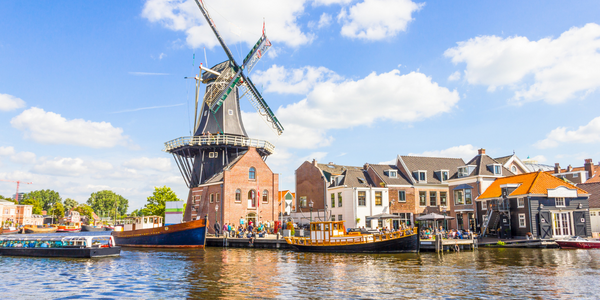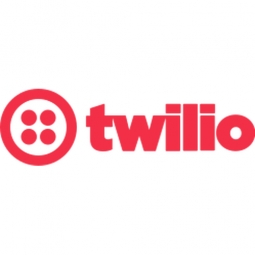Download PDF
DriveNow Enhances Car Reservation Experience with Twilio
Technology Category
- Sensors - Autonomous Driving Sensors
- Sensors - GPS
Applicable Industries
- Automotive
- Cities & Municipalities
Applicable Functions
- Procurement
Use Cases
- Smart Parking
- Vehicle-to-Infrastructure
The Challenge
DriveNow, a joint venture between BMW and Sixt, provides carsharing services in various European and North American cities. The company faced a significant challenge in ensuring a quick and reliable car rental registration and reservation process for its customers. The process involved sending SMS notifications at two key stages - user registration and car reservation. However, DriveNow was experiencing issues with the reliability of these SMS notifications. Many customers reported that text messages were either delayed or failed to arrive altogether. This led to an increase in phone calls to the DriveNow call center, resulting in frustrated customers and increased operational costs. Additionally, DriveNow needed a solution that could adapt to different cities and territories as the company planned to expand its services.
About The Customer
DriveNow is a carsharing service that operates in several cities across Europe and North America. The company is a joint venture between German automobile giant BMW and Sixt, one of the world's largest car rental companies. DriveNow's fleet includes a range of high-end vehicles, from the BMW 1 Series to the MINI Convertible. The service allows drivers to reserve a nearby car, pick it up, and then leave it anywhere within a defined area, with customers paying by the minute for each journey. DriveNow aims to provide a quick and reliable car rental registration and reservation process for its customers.
The Solution
DriveNow turned to Twilio to streamline its user registration and reservation process. Twilio's Programmable SMS service was used to send confirmation PINs to users upon registration and important information about the car model, color, and location when a car was reserved. Twilio's solution was chosen for its reliability and immediacy, as SMS notifications were found to be the most effective way to reach customers in cities with varying network coverage. Furthermore, Twilio's ability to provision local German numbers through an API call allowed DriveNow to create a consistent SMS profile, regardless of the location. This feature was particularly beneficial as DriveNow expanded its services to other cities in Germany, as well as San Francisco and Vienna, with plans for further expansion in North America and Europe.
Operational Impact
Quantitative Benefit
Related Case Studies.

Case Study
Turning A Stadium Into A Smart Building
Honeywell created what it called the “intelligent system” for the National Stadium in Beijing, China, turning the venue for the opening and closing events at the 2008 Summer Olympics into a “smart building.” Designed by highly controversial artist Ai Weiwei, the “Bird’s Nest” remains one of the most impressive feats of stadium architecture in the world. The 250,000 square meter structure housed more than 100,000 athletes and spectators at a time. To accommodate such capacity, China turned to Honeywell’s EBI Integrated Building Management System to create an integrated “intelligent system” for improved building security, safety and energy efficiency.
.png)
Case Study
Smart Street Light Network (Copenhagen)
Key stakeholders are taking a comprehensive approach to rethinking smart city innovation. City leaders have collaborated through partnerships involving government, research institutions and solution providers. The Copenhagen Solutions Lab is one of the leading organizations at the forefront of this movement. By bringing together manufacturers with municipal buyers, the Copenhagen Solutions Lab has catalyzed the development and deployment of next-generation smart city innovations. Copenhagen is leveraging this unique approach to accelerate the implementation of smart city solutions. One of the primary focus areas is LED street lighting.

Case Study
Integral Plant Maintenance
Mercedes-Benz and his partner GAZ chose Siemens to be its maintenance partner at a new engine plant in Yaroslavl, Russia. The new plant offers a capacity to manufacture diesel engines for the Russian market, for locally produced Sprinter Classic. In addition to engines for the local market, the Yaroslavl plant will also produce spare parts. Mercedes-Benz Russia and his partner needed a service partner in order to ensure the operation of these lines in a maintenance partnership arrangement. The challenges included coordinating the entire maintenance management operation, in particular inspections, corrective and predictive maintenance activities, and the optimizing spare parts management. Siemens developed a customized maintenance solution that includes all electronic and mechanical maintenance activities (Integral Plant Maintenance).

Case Study
Buoy Status Monitoring with LoRa
The Netherlands are well-known for their inland waterways, canals, sluices and of course port activities. The Dutch Ministry of Infrastructure indicates that there are thousands of buoys and fixed items in and near water environments that would profit from IoT monitoring. One of the problems with buoys for example, is that they get hit by ships and the anchor cable breaks. Without connectivity, it takes quite some time to find out that something has happened with that buoy. Not to mention the costs of renting a boat to go to the buoy to fix it. Another important issue, is that there is no real-time monitoring of the buoys at this moment. Only by physically visiting the object on the water, one gains insight in its status.







